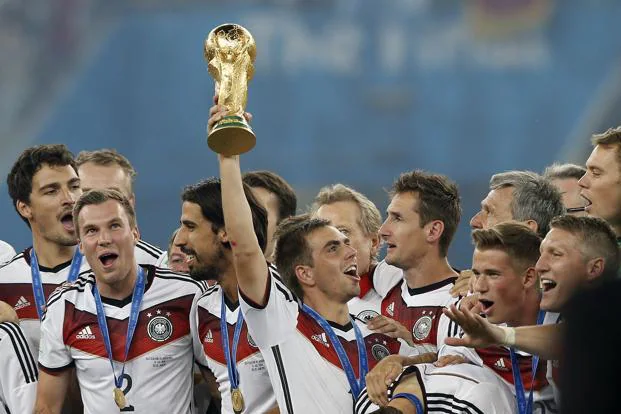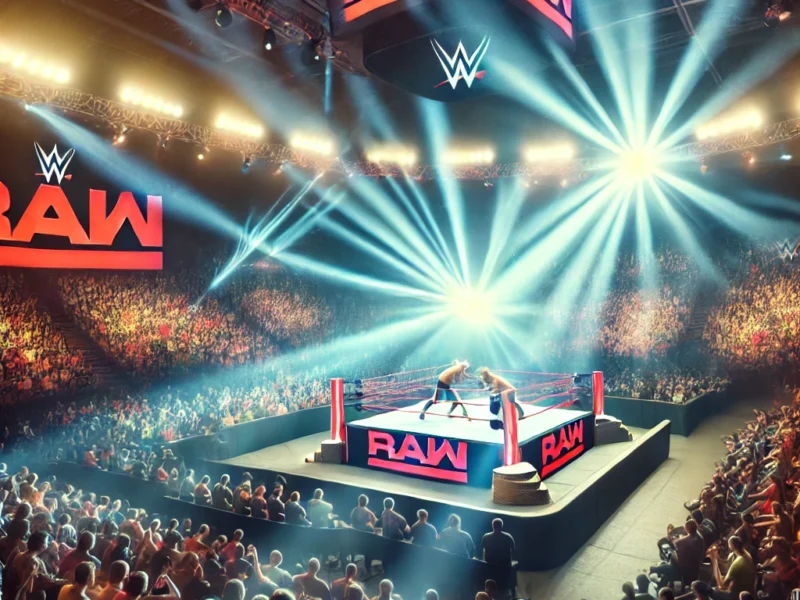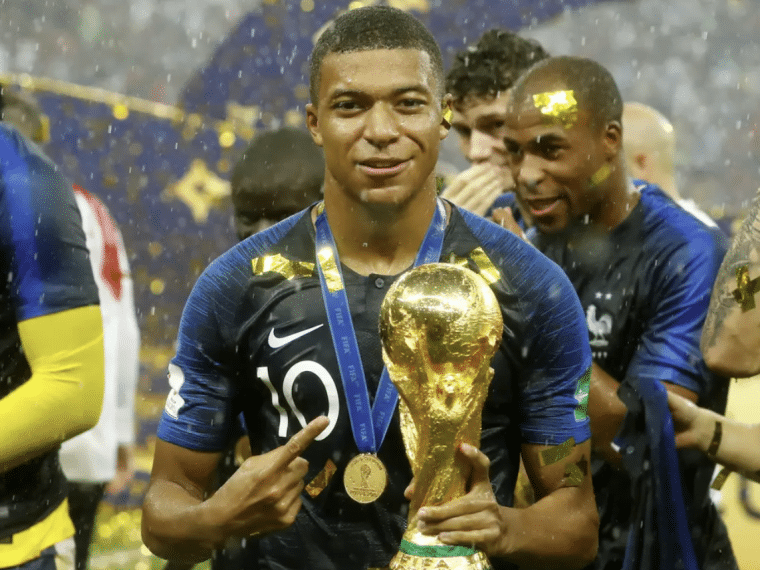Germany’s journey in the FIFA World Cup has been one filled with triumph, resilience, and a commitment to excellence. From their debut in the tournament to their latest achievements, the German national team has consistently been a dominant force in international football. This article delves deep into Germany World Cup history, showcasing why they are considered one of the best football nations in the world. Through an exploration of their iconic moments, key players, and memorable matches, we’ll build excitement and trust in the greatness of German football.
A Legacy of Dominance on the World Stage
Germany’s prominence in the World Cup is unmatched. Having won the tournament four times, Germany stands among the elite footballing nations, proving time and again their ability to compete at the highest level. Their victories in 1954, 1974, 1990, and 2014 demonstrate their sustained excellence over decades.
-
1954 – The Miracle of Bern:
- Germany’s first World Cup triumph came in 1954, in what is known as the “Miracle of Bern.” Overcoming long odds, West Germany defeated the heavily favored Hungarian team 3-2 in the final. This victory marked the beginning of a new era in German football, and it remains a pivotal moment in the country’s sporting history.
-
1974 – The Second Triumph:
- On home soil, West Germany secured their second World Cup title. Led by Franz Beckenbauer, they defeated the Netherlands 2-1 in a final that epitomized tactical brilliance and skill. The victory also solidified Beckenbauer’s status as one of the greatest players of all time.
-
1990 – A United Victory:
- As West and East Germany reunified, the national team celebrated its third World Cup victory in 1990. Under Beckenbauer’s leadership as a coach, Germany triumphed over Argentina 1-0 in a closely contested final. This win was more than just football—it symbolized national pride and unity during a time of historic change.
-
2014 – The Brazilian Dream:
- Germany’s 2014 World Cup win will forever be remembered for their outstanding performance, particularly in their 7-1 demolition of Brazil in the semi-final. In the final, Germany triumphed over Argentina once again, thanks to a stunning extra-time goal by Mario Götze. This win marked a new era of German dominance, led by young stars such as Thomas Müller and Manuel Neuer.
In comparison, teams from the United States are also experiencing exciting developments in the international sports arena. For instance, the USA Olympic Basketball Team 2024 is gearing up for the upcoming Olympic Games with a fresh roster of talent, and the USA Gymnastics Olympic Team 2024 is expected to dominate once again on the world stage.
The Germany World Cup Philosophy
Germany’s success on the world stage is not just about talent—it’s rooted in a well-defined footballing philosophy. Known for their discipline, work ethic, and tactical intelligence, the German team has been an embodiment of resilience and teamwork. Their consistent ability to adapt to modern football trends while maintaining a focus on teamwork has been a key to their prolonged success.
Germany’s youth development programs have also played a major role in producing world-class players. With a focus on technical skills, mental strength, and physical conditioning, German academies have produced players like Philipp Lahm, Mesut Özil, and Bastian Schweinsteiger. This strong pipeline of talent has ensured that Germany remains a global powerhouse in football.
Key Players Who Defined Germany World Cup Success
Germany World Cup success is inextricably linked to the legends who have donned the national team jersey. Players like Franz Beckenbauer, Lothar Matthäus, Miroslav Klose, and Manuel Neuer have not only achieved great individual success but have also inspired generations of footballers and fans alike.
-
Franz Beckenbauer:
- Known as “Der Kaiser,” Beckenbauer led West Germany to World Cup glory both as a player and as a coach. His leadership and tactical intelligence on the field redefined the role of a defender.
-
Miroslav Klose:
- The all-time leading scorer in World Cup history with 16 goals, Klose’s achievements on the world stage have made him a national hero. His record-breaking performances were crucial to Germany’s 2014 triumph.
-
Manuel Neuer:
- Revolutionizing the role of a goalkeeper, Neuer’s exceptional ability to act as a “sweeper-keeper” brought a new dimension to Germany’s defense. His performances in 2014 earned him the Golden Glove award, cementing his place as one of the greatest goalkeepers in history.
The Iconic Matches That Defined Germany World Cup Journey
Throughout germany world cup, Germany has been involved in some of the most thrilling and memorable matches in football history. Each of these moments has contributed to the excitement and passion surrounding Germany World Cup legacy.
-
2014 Semi-Final – Germany vs Brazil (7-1):
- Perhaps the most shocking result in World Cup history, Germany’s dismantling of Brazil on their home turf left the football world in awe. It was a perfect example of German efficiency and teamwork, as they ruthlessly tore through Brazil’s defense to book their place in the final.
-
1954 Final – Germany vs Hungary (3-2):
- The “Miracle of Bern” is still talked about as one of the most remarkable comebacks in World Cup history. West Germany’s unexpected victory over Hungary, a team that had thrashed them 8-3 earlier in the tournament, showcased their fighting spirit.
Germany’s Consistency: Always a Contender
One of the most remarkable aspects of Germany World Cup journey is their consistency. While other nations have experienced peaks and troughs, Germany has reached the semi-finals or better in numerous tournaments. This consistency speaks to their footballing culture, which places immense importance on preparation, discipline, and tactical awareness.
Germany’s ability to consistently rebuild and refresh their squad has also contributed to their long-standing success. Even after setbacks, such as their early exit in the 2018 World Cup, the national team remains focused on rebuilding for the future, determined to reclaim their place at the top of international football.
FAQ: Common Questions About Germany’s World Cup Legacy
Q: How many World Cups has Germany won?
A: Germany has won the World Cup four times: in 1954, 1974, 1990, and 2014.
Q: Who is Germany’s top scorer in World Cup history?
A: Miroslav Klose is Germany’s top scorer, with 16 goals, making him the all-time leading scorer in World Cup history.
Q: What is Germany’s biggest World Cup victory?
A: Germany’s biggest victory in a World Cup came in 2014, when they defeated Brazil 7-1 in the semi-final.
Q: How does Germany prepare for World Cup tournaments?
A: Germany’s preparation is focused on a combination of youth development, tactical training, and mental conditioning. Their footballing philosophy emphasizes teamwork, discipline, and adaptability.
The Future of German Football
Germany’s illustrious World Cup history is a testament to their footballing greatness. While recent setbacks, such as their early exit in 2018, have prompted introspection, the future remains bright for the German national team. With a renewed focus on youth development and tactical innovation, Germany is well-positioned to continue their tradition of success in future tournaments.
Germany World Cup legacy is not just about the trophies—they’ve created a footballing culture built on passion, resilience, and excellence. As the next generation of players rises, Germany will undoubtedly continue to inspire and excite football fans around the world.
Conclusion
Germany World Cup journey is a story of determination, excellence, and consistent achievement. With four World Cup titles and countless iconic moments, Germany has cemented itself as one of the greatest footballing nations of all time. As they look ahead to future tournaments, their legacy of success is sure to continue, inspiring fans and players alike.
Germany’s rich footballing history, legendary players, and commitment to the beautiful game make them a team to watch, not just in the past but also in the future



